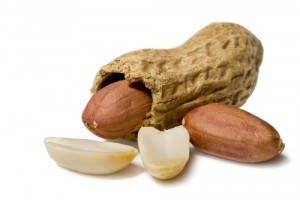Peanut allergies in toddlers is a scary thing. At nine months old, we gave our daughter her first taste of peanut butter and she loved it — but a few hours after eating it, she had a rash on her chin. We took her to the doctor, who then referred us to a busy paediatric allergist would couldn’t see us for six months. In the mean time, we bought an EpiPen and removed all traces of peanut butter from our home. It was hard, because peanut butter was a staple for us — easy to prepare, a good source of protein, and just darn tasty. Then all we could do was wait.
And when I wait, I Google. So I Googled all the horrible things that could happen to my child should she have an anaphylactic reaction to peanuts, I Googled how to avoid other kids who have recently eaten peanuts, I forced family members to refrain from eating peanuts around my child. It was a constant source of worry.
Then I Googled how to avoid peanuts at day care and school, and discovered that there are a lot of unforgiving parents out there who just don’t give a darn if your child is allergic to something or not. Don’t get me wrong: most parents out there are respectful of other children’s diet restrictions, but I found a good portion of parents who callously proclaimed that they’re sending peanuts to school, come hell or high water, and if you don’t like it, keep your allergic kid at home. It was so heartbreaking to me that my child might be ostracized for something that we couldn’t control and never cure.
So, what do do?
Fortunately, there are a lot of options other than peanut butter for toddlers who have allergies. Sunflower seed butter, pumpkin seed butter or soy nut butter are good and healthy options. And, if your child isn’t allergic to tree nuts, almond butter is a healthy and tasty alternative too.
While schools and day cares are usually peanut-free, it’s the snacks that kids bring from home that might have nuts. Kids like to share, so your child might inadvertently eat something they are not supposed to. So, it might be helpful to write a letter to the other parents explaining your child’s situation and what might happen should he/she come in contact with peanuts, and let them know how grateful you’d be if they refrained from packing peanut-containing snacks.
And, if you find your child in a situation where peanuts are unavoidable (say a birthday party or other gathering), always pack some of your child’s favourite peanut-free snacks that you can pull out in a pinch, and have a enough to share with other kids so your child still feels like part of the group.
Click here for more information on food allergies in infants and toddlers.
If you have a toddler that is allergic to peanuts, how do you cope? We’d love to hear your tips and ideas.

